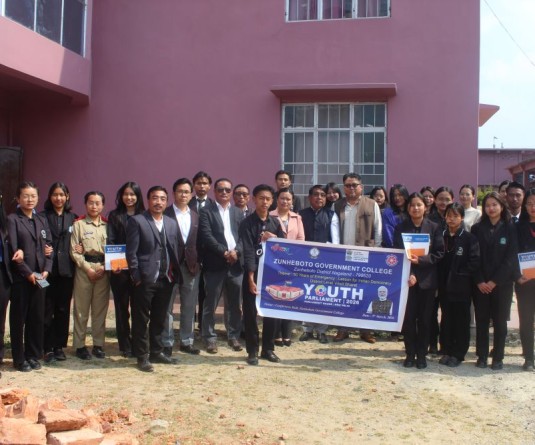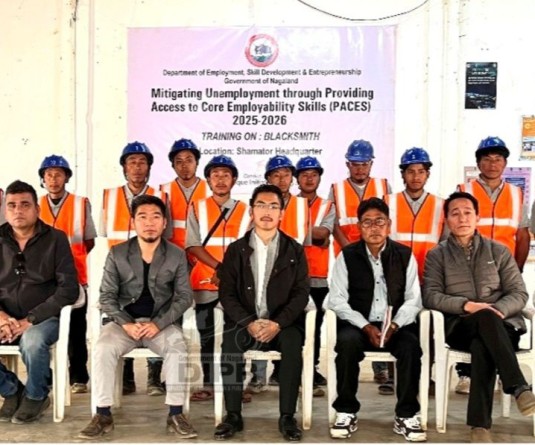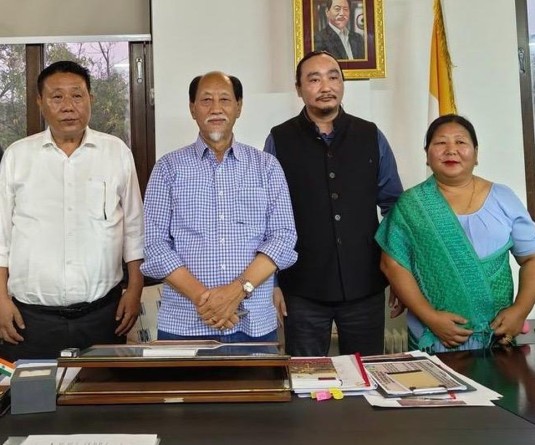
Morung Express News
Kohima | May 25
A seminar on ‘Exploring Synergies between Government, Corporate and Community in Sanitation’ was held on May 25, jointly organised by the North East Initiative Development Agency (NEIDA), an initative of the Tata Trusts, and the Federation of Indian Chambers of Commerce and Industry (FICCI), the apex body of Chambers in India, and in collaboration with the Public Health Engineering (PHED), Government of Nagaland.
The primary objective of the seminar was to make sensitization a ‘citizen’s movement,’ which will serve as a platform for cross learning from national and state level experiences. The programme agenda also targets bringing together the corporate, government organizations and the community towards the common vision and goal of making Nagaland an Open Defecation Free (ODF) State.
With 88.6% households having access to sanitary toilets, Nagaland is one of the better placed states in India. With the limelight on sanitation, several agencies and corporations have started to synergize efforts for better sanitation in various states including Nagaland and sanitation has become one of the major areas of focus for their CSR initiatives.
However, it is necessary to boost the preparedness of governmental agencies to cope up with the other states of India and to cope up with the changing dynamics of the sanitation sector. In Nagaland, the challenge would be to engage communities to take owner ship of changing habits and lifestyle related issues in order to ensure an ODF Nagaland.
Highlighting the activities of Swachh Bharat Mission (SBM) in Nagaland, Maongwati Aier, IAS, Secretary, PHE also threw light on the community’s effort in the Mission. With the communitisation which started in 2003, all the communities have been working together in this mission. Maongwati also announced that by next month, six districts in Nagaland will be declared Open Defecation Free (ODF).
The PHE Secretary also conveyed the need to trigger the minds of the people to change their behavior patterns and ensure proper sanitation in Nagaland. Emphasizing on the essence of effective monitoring of the mission, Maongwati stated that monitoring of outcomes will be the focus, to be measured in terms of toilet usage as reflected in creation of ODF communities. Effective monitoring will ensure whether toilets have been constructed, whether these constructed toilets are being used and whether ODF communities have been created.
The keynote address was delivered by Biswanath Sinha, Associate Director, Tata Trusts, who highlighted the activities, programs and projects that the Trust is conducting in Nagaland and the North East states. A major project is the Tata Water Mission (TWM)’s Water and Sanitation and Hygiene (WASH) – a four years pilot project in Nagaland to ensure availability of safe drinking water and sanitation in 700 households in the four villages in Noksen block of Tuensang.
Working with its associate organisation NEIDA in Nagaland, in partnership with Eleutheros Christian Society (ECS), the Trust has sponsored 5.8 crores, where the project will also include hydrogeology based Springshed management works. Another major objective of the Trust is to make the entire Nagaland Open Defecation Free (ODF).
Hiranya Borah, Deputy Director, MoDWS, Government of India, meanwhile shared his experiences working in Nagaland and appealed the Nagas to continue to put their efforts in developing the State.
The topics presented and discussed in the technical sessions were Role of Tata Trust in the success of SBM in India, role of community organizations, sharing of best practices from Assam and Mizoram on sanitation, experience sharing by the community from best Swachh villages in Nagaland, corporate initiatives, sanitation and prevention of infectious and communicable diseases, and priorities of WASH during crisis and emergencies.






